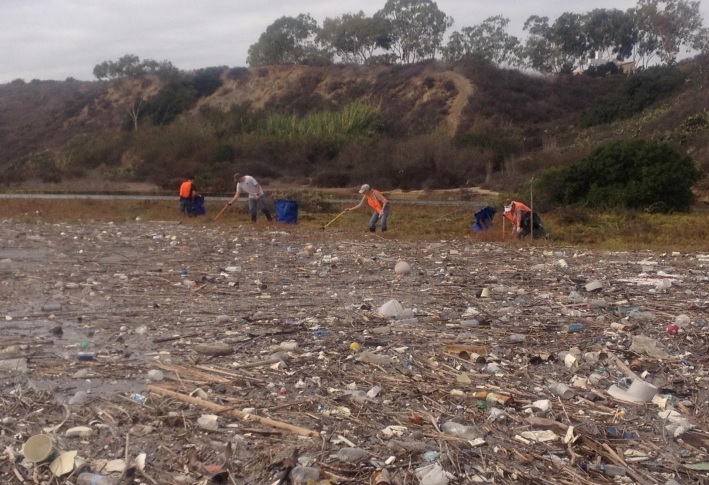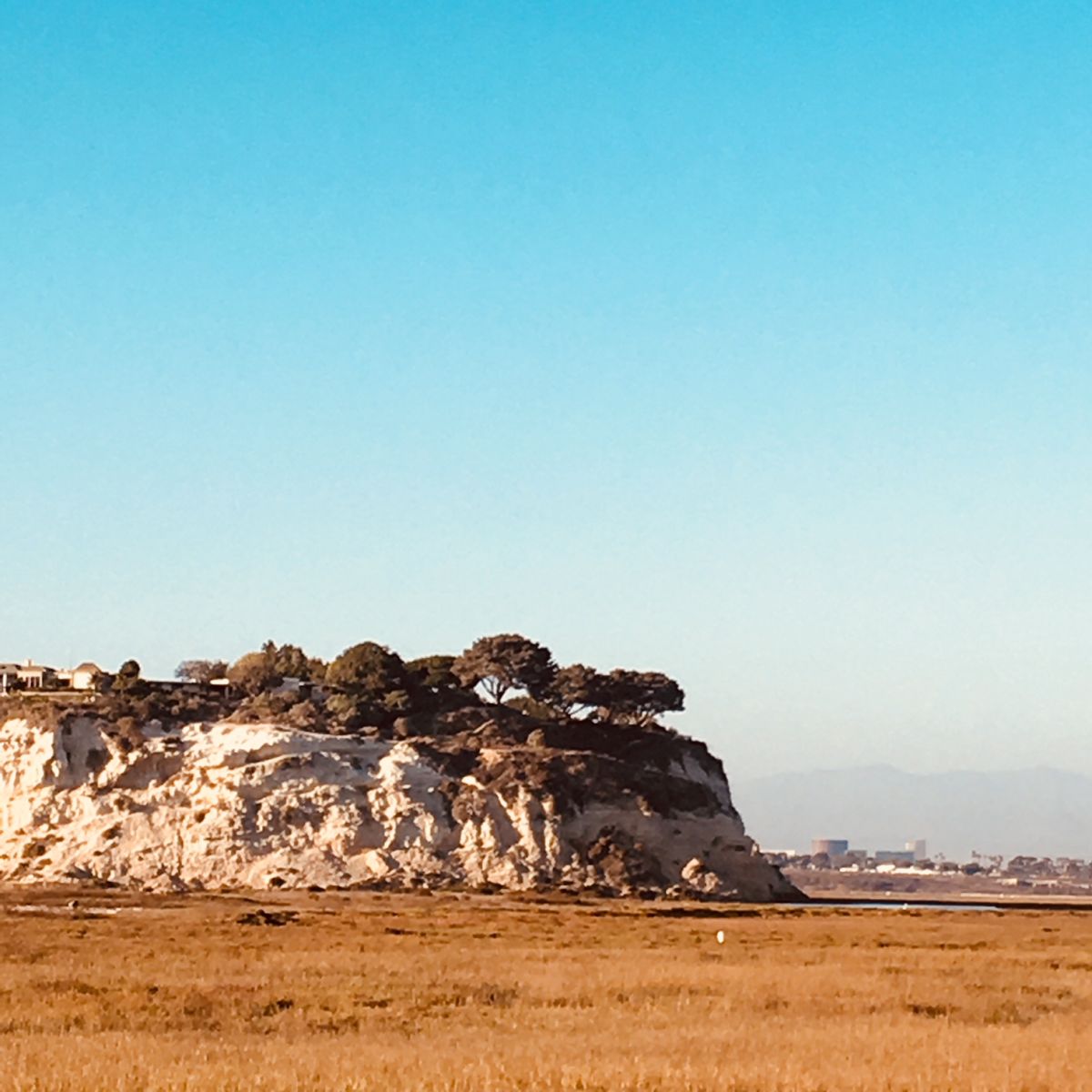Christmas started at Costco after Labor Day. By now, merrymakers have officially bought gifts and all kinds of other items to decorate their homes for the holidays. Now imagine there are no landfills and no recycling centers. What if you had to keep your trash and recyclables in your own yard? What kinds of things would you buy -- and what wouldn't you buy?
Before you answer that, consider what happens to some of your trash right now. If you don’t live by the port of Long Beach or Los Angeles, you may not be aware that shipping containers of recyclables slated to make a return trip to China are piling up. China, which was taking more than 60% of our recyclables, wants no more junk. The government told the World Trade Organization "that it had found large amounts of dirty and hazardous material mixed with solid waste, leading to serious environmental pollution," CNN Money reported in September.
 |
| Trash that washed into Southern California's Newport Bay after a rainstorm. Credit: Bob Stein |
In response, the California Department of Resources Recycling and Recovery, or CalRecycle, suggests raising taxes to pay for disposal. And of course, that would mean more landfills.
Then there is the not-new news. Winter in Southern California brings rain. Rain washes the inappropriately disposed trash from cities down through the storm drains, rivers and creeks into the ocean. The Frappuccino cups, the party trays, the gift wrappers (and sometimes even the gifts) all get caught in the flow. The stuff we consumed for a merry time, now flows to the ocean and carries bacteria to sea turtles, fish and birds, eventually killing some of them.
Some volunteers brave the bacteria to participate in cleanups. How can the few of them fix a problem created by the mass of society? Doesn't it make more sense to just consume less? Throw away less? Now.
So back to the landfill-free world. Since much of our consumption is based on what we want rather than what we need, all of us can do much to cut back on what we buy. Let’s make this mindset/practice a steady work-in-progress. No change is too small to be meaningful. As Pope Francis wrote in "Laudato Si: On Care for Our Common Home": “There is a nobility in the duty to care for creation through little daily actions.”
 |
| Newport Bay in Newport Beach, without the trash. Credit: Hoiyin Ip |
Start with single-use plastic. This stuff is made of fossil fuel (bad), and isn't biodegradable (guilty). Take our consumer survey of single-use plastics. We’ve enjoyed hearing from survey participants and how they started changing little habits.
So here is my call for action: For the rest of the year, which is really the holiday season, let each of us work on one change as a gift to our common home. Happy holidays to all!
Hoiyin Ip is a Sierra Club member in Orange County who works on zero-waste issues.